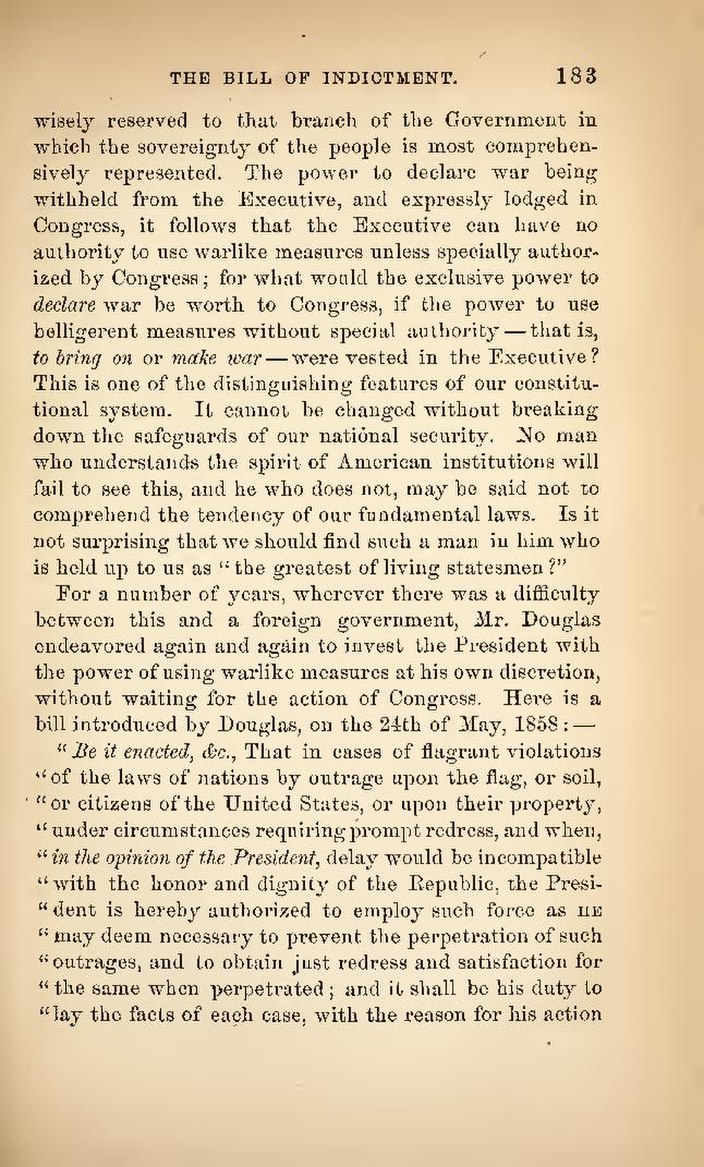wisely reserved to that branch of the Government in which the sovereignty of the people is most comprehensively represented. The power to declare war being withheld from the Executive, and expressly lodged in Congress, it follows that the Executive can have no authority to use warlike measures unless specially authorized by Congress; for what would the exclusive power to declare war be worth to Congress, if the power to use belligerent measures without special authority—that is, to bring on or make war—were vested in the Executive? This is one of the distinguishing features of our constitutional system. It cannot be changed without breaking down the safeguards of our national security. No man who understands the spirit of American institutions will fail to see this, and he who does not, may be said not to comprehend the tendency of our fundamental laws. Is it not surprising that we should find such a man in him who is held up to us as “the greatest of living statesmen?”
For a number of years, wherever there was a difficulty between this and a foreign government, Mr. Douglas endeavored again and again to invest the President with the power of using warlike measures at his own discretion, without waiting for the action of Congress. Here is a bill introduced by Douglas, on the 24th of May, 1858:—
“Be it enacted, &c., That in cases of flagrant violations of the laws of nations by outrage upon the flag or soil, or citizens of the United States, or upon their property, under circumstances requiring prompt redress, and when, in the opinion of the President, delay would be incompatible with the honor and dignity of the Republic, the President is hereby authorized to employ such force as HE may deem necessary to prevent the perpetration of such outrages, and to obtain just redress and satisfaction for the same when perpetrated; and it shall be his duty to lay the facts of each case, with the reason for his action
